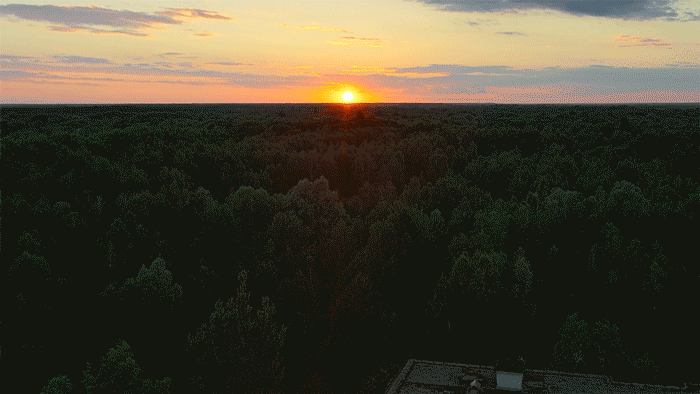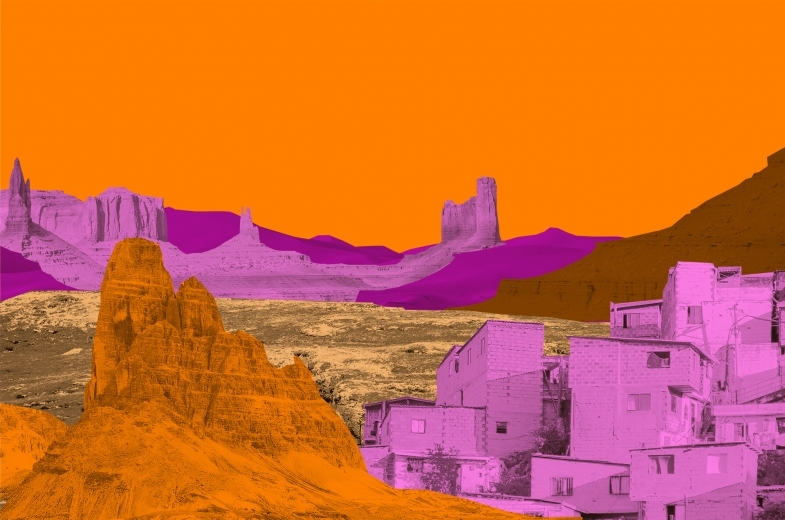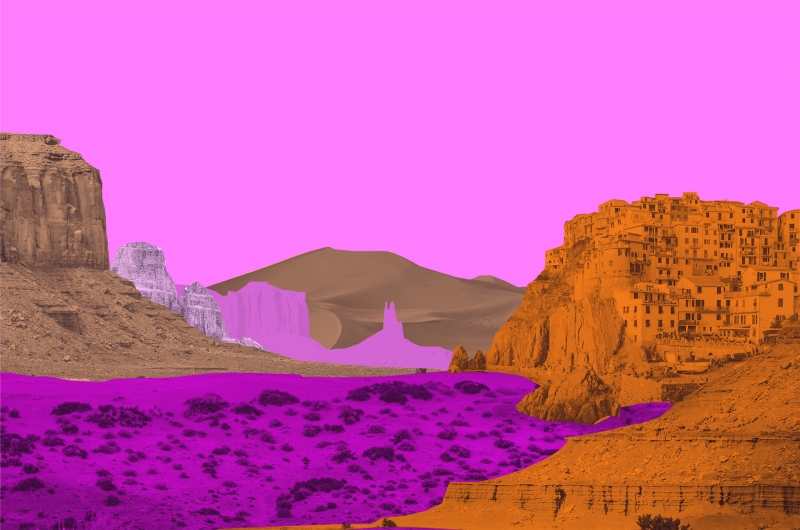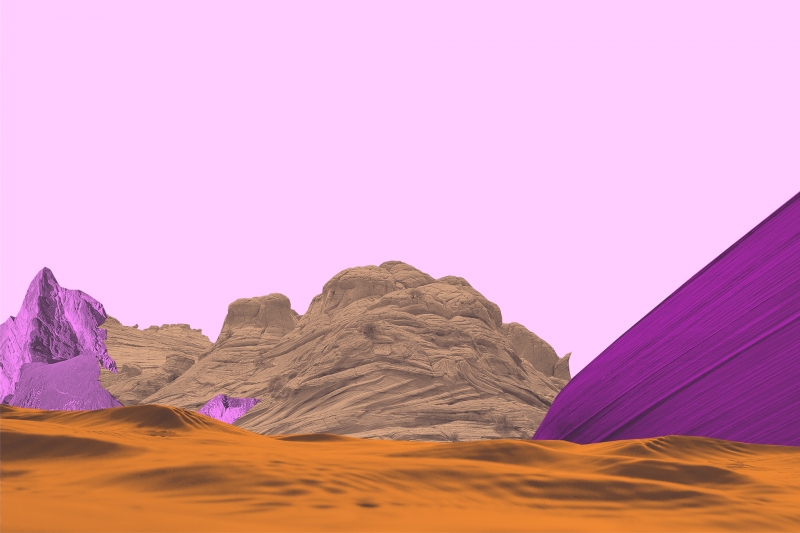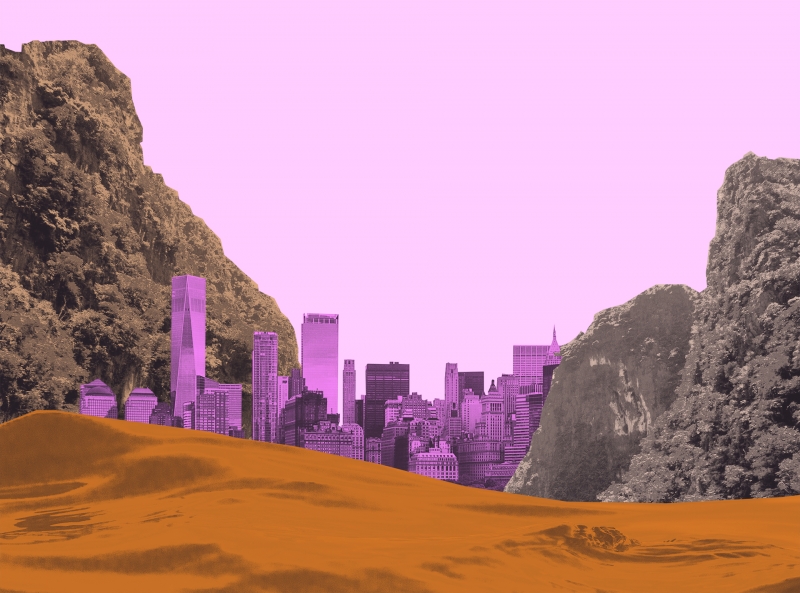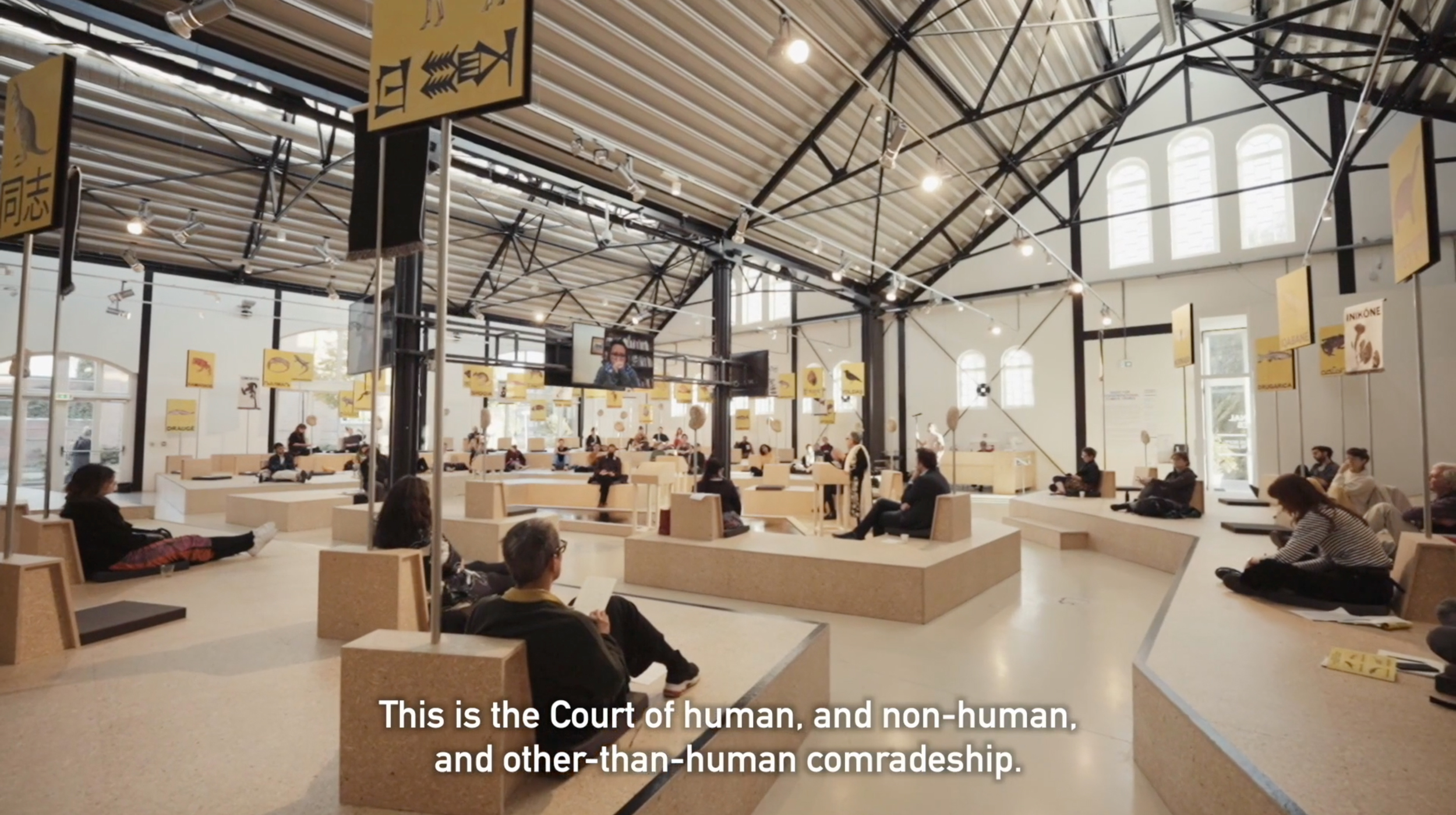
Radha D'Souza and Jonas Staal: Court for Intergenerational Climate Crimes, Video Study
Shown here from 16 November 2021 to 16 January 2022, as part of the Climate Collective video screening series.
Radha D’Souza and Jonas Staal’s short video offer an overview of the conceptual premises and aims of their collaborative project the Court for Intergenerational Climate Crimes. It asks, “what does it mean to address a human, an animal, a tree, or plant as ‘comrade’?” For the Court, language – including the terminology of comradely political belonging – opens up new paradigms of relationality and commonality, surpassing the objectifying dimensions of property, and proposing entire new juridico-political frameworks for justice. As an entrance into their larger participatory project, the video lays the groundwork for the momentous socio-environmental transformation required of the work of aesthetics and politics today.
— Climate Collective: T. J. Demos, Molemo Moiloa, Susan Schuppli and Paulo Tavares
Video still from “Court for Intergenerational Climate Crimes, Video Study”, 2021, by Radha D'Souza and Jonas Staal. Courtesy of the authors.
“Modern law institutionalised the separation of people and nature turning the living world into property, subsequently inscribing mass theft, murder, enslavement, resource extraction and cultural genocide across living human and non-human worlds into the architecture of capitalist modernity. Racial-ecocidal capitalism drives species extinction, perpetrating fatal intergenerational climate crimes as it destroys ecologies of interdependent life-forms.
The CICC [Court for Intergenerational Climate Crimes] calls for an understanding of rights not as individual property, which lies at the foundation of the current ecosystem collapse, but of rights as a relationship between humans, between humans and non-humans, and between non-humans that is not proprietary. If the rights of a river are harmed, the rights of all animals, plants and humans living in interdependence with that river in present and future are harmed as well.
The CICC thus seeks to shift the language of rights from a proprietary to an interdependent way of being in the world by recognising and addressing our non-human ancestors as comrades and by introducing a spirit and practice of comradeship in prosecuting intergenerational climate crimes. It is for this reason the non-human ancestors in this publication are all named “comrade” in different languages.
The CICC acknowledges our non-human ancestors as fellow ecosystem workers. Rather than seeing them as ‘extinct’, the CICC recognises them as martyrs in the struggles for existence of all species and a biosphere for all. For the CICC, nature is a relationship that defines our shared struggle and collective work, and not an adversarial separation.”
— Jonas Staal, in Court for Intergenerational Climate Crimes (CICC): Comrades in Extinction, Framer Framed, Amsterdam, 2021. Accessed here, December 2021.
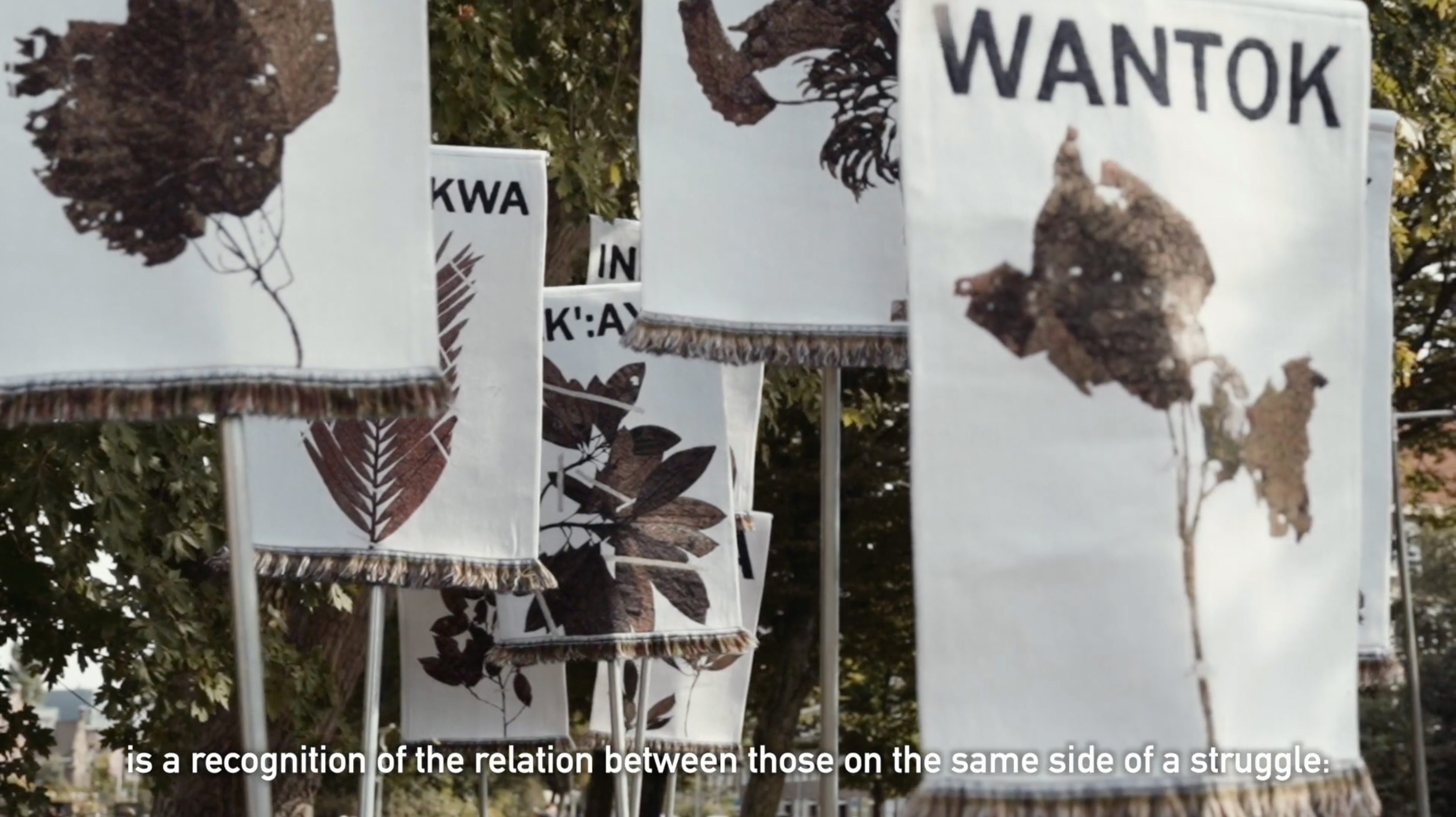
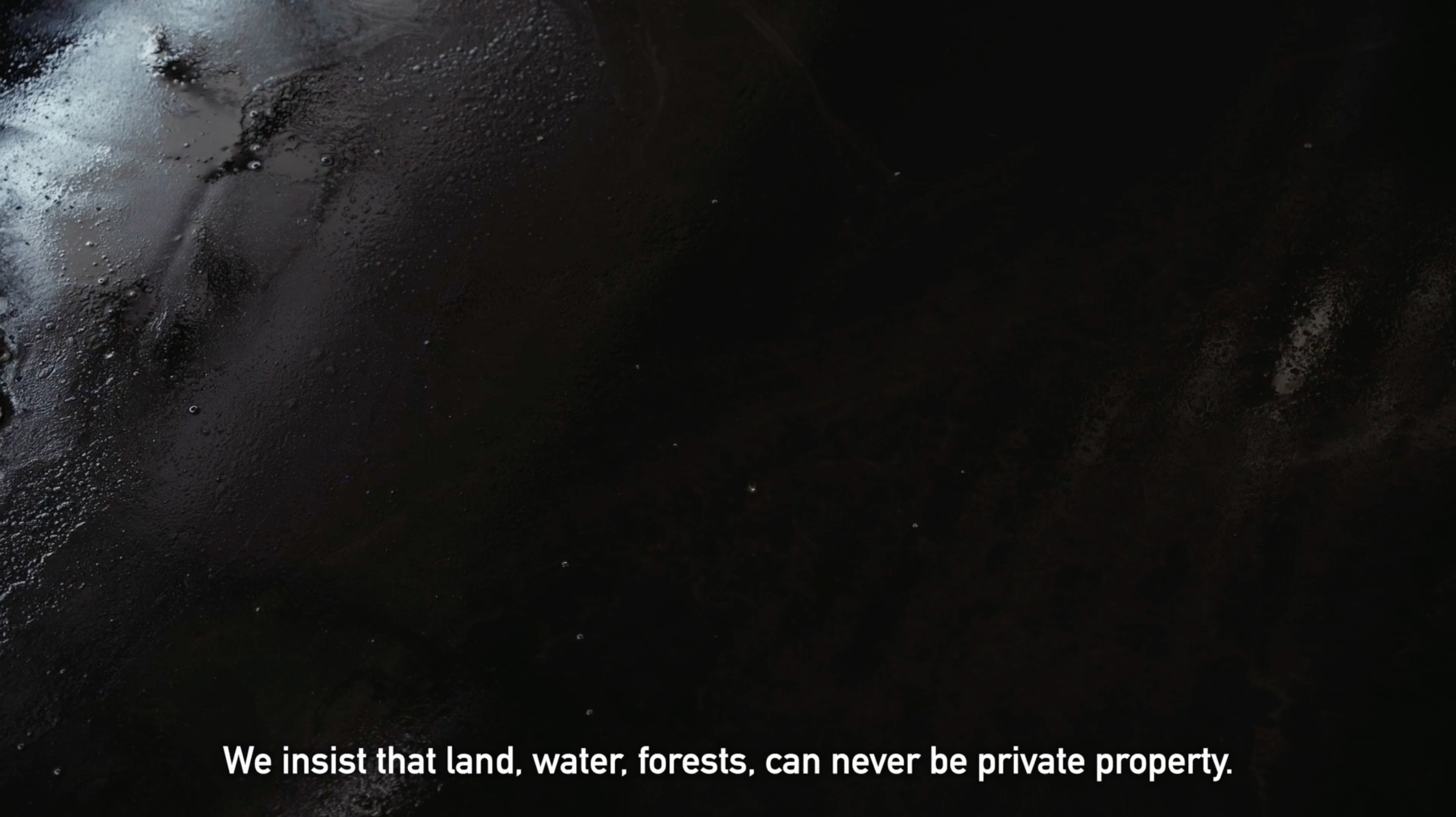
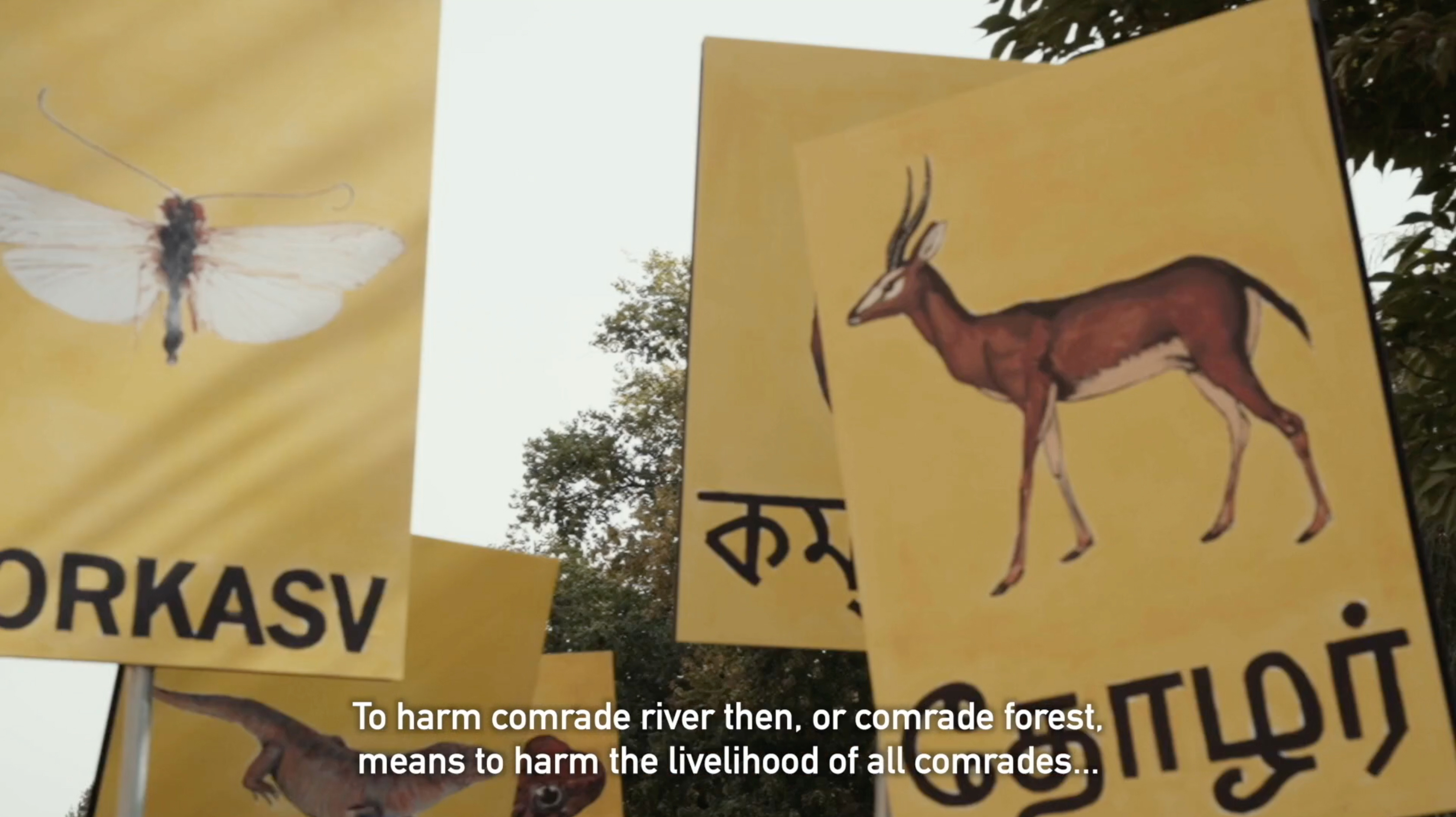
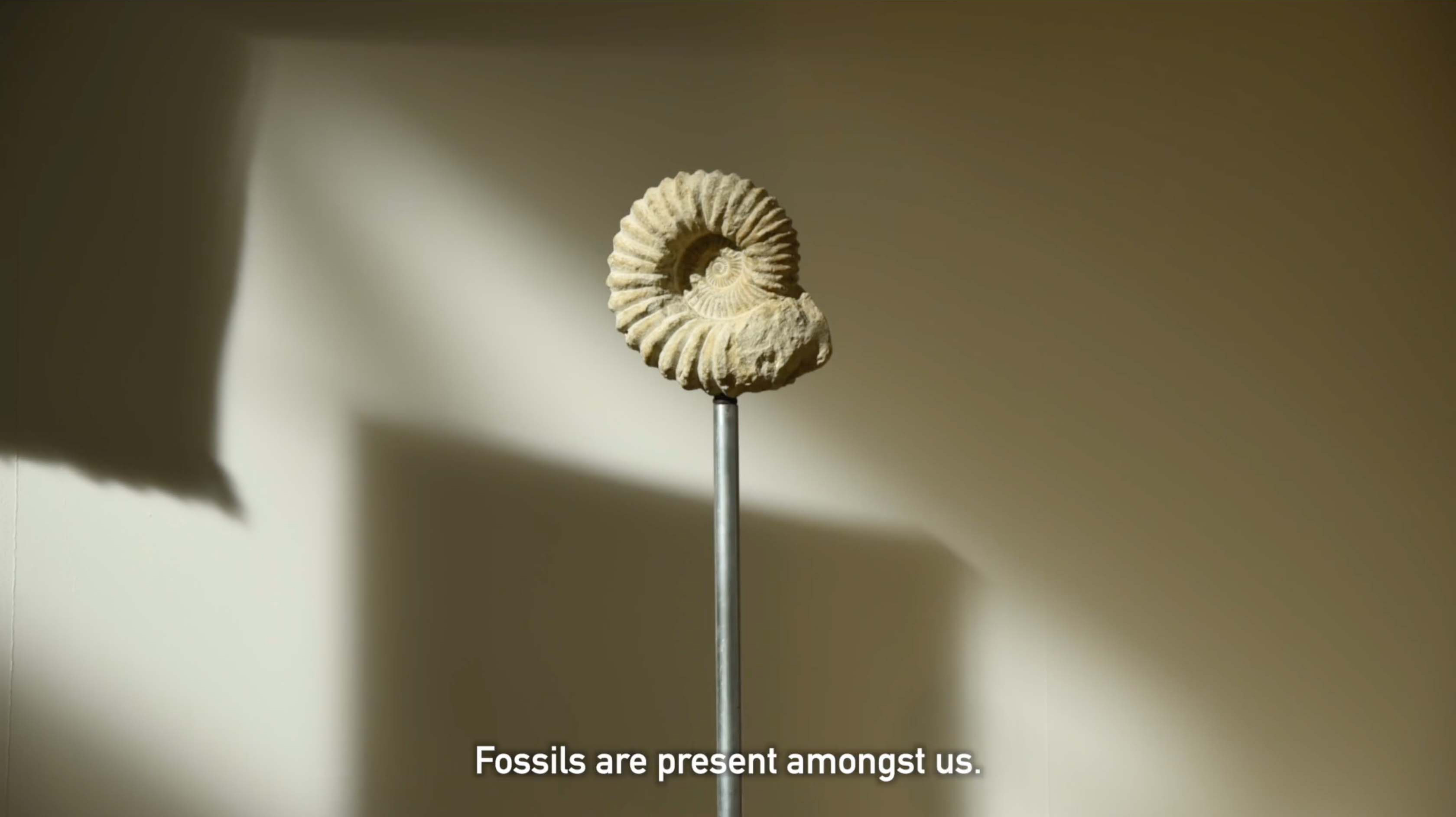
“One of the attributes of the human species is that they must, necessarily, engage with nature through work to reproduce the conditions necessary for life. This attribute, the necessity to labour in order to exist, the need to interact with nature to live, makes the human species distinct from others. When human beings work with nature, they form a bond with nature and with each other through their work. These bonds are the basis of community and place formations. European modernisation ruptured those bonds. It transformed places into territories that require authorisation by states through grants of citizenship for people to live and work. My point is, whatever the law may say about property and labour markets, the reality of life has reaffirmed over and over again through crises after crises that have riddled capitalist modernity, that it is not possible to reproduce the conditions necessary for human life when the relationship between nature and people is ruptured, or when it becomes an abusive relationship.”
— Radha D’Souza, in “Introduction to the Court for Intergenerational Climate Crimes. A Conversation between Radha D’Souza and Jonas Staal”, Errant Journal: Slow Violence (No. 2, Spring/Summer 2021).
Radha D’Souza is a Professor of International Law, Development and Conflict Studies at the University of Westminster (UK). D’Souza works as a writer, critic and commentator. She is a social justice activist and worked with labour movements and democratic rights movements in her home country of India as an organiser and activist lawyer. She is the author of What’s Wrong with Rights? (Pluto Press, 2018), a critical analysis of neoliberal legal institutions.
Jonas Staal is a Dutch visual artist whose work explores the relationship between art, propaganda and democracy. His work manifests itself internationally in the form of interventions in public space, exhibitions, lectures and publications. Staal completed his PhD research on contemporary propaganda art at Leiden University, the Netherlands. His most recent book is Propaganda Art in the 21st Century (MIT Press, 2019).
The Climate Emergency > Emergence public programme initiative energises critical analyses and creative proposals in moving beyond catastrophism and toward the emergence of environmentally sustainable futures. Interdisciplinary in breadth and international in scope, the programme is conceptualised by the newly-formed 2021 Climate Collective: T. J. Demos (USA), chair and chief-curator, Molemo Moiloa (South Africa), Susan Schuppli (UK), Paulo Tavares (Brazil), geared toward assembling diverse cultural practitioners working at the intersection of experimental arts and political ecology.
As part of the programme taking place from April until December 2021, the Climate Collective has curated an online video screening series featuring films by a variety of international and local practitioners around themes addressed in the ongoing events.
“maat Explorations” is a programme framework featuring an ongoing series of exhibitions, public and educational projects delving into the multi-faceted subject of environmental transformation from various scholarly and experimental vantage points – it brings philosophical and political perspectives forward, as well as sociocultural and technological investigations interwoven in speculative and critical practices in the arts and design at large.
Central to the discursive and critical effort of “maat Explorations” is the establishment of the Climate Collective, a rotating group of experts in the expanded field of contemporary art, design and technology that will each year propose a refreshed vision on the connection between creative practices, ecological thought and politics.


